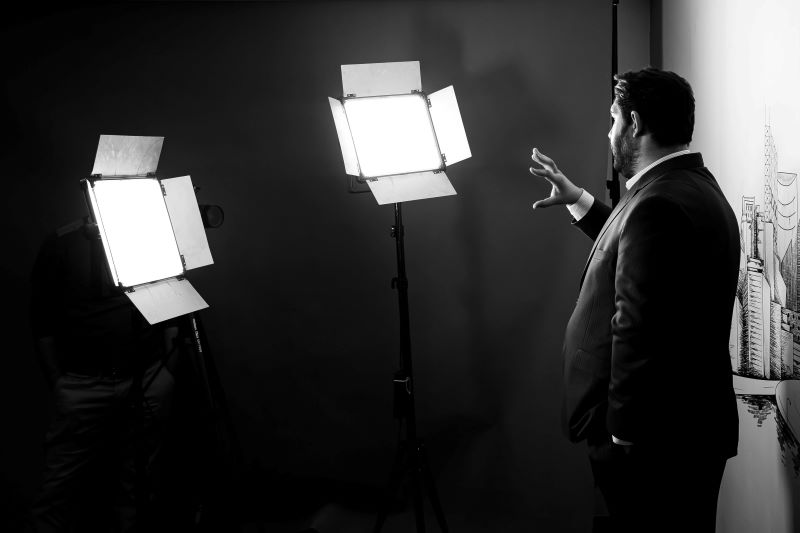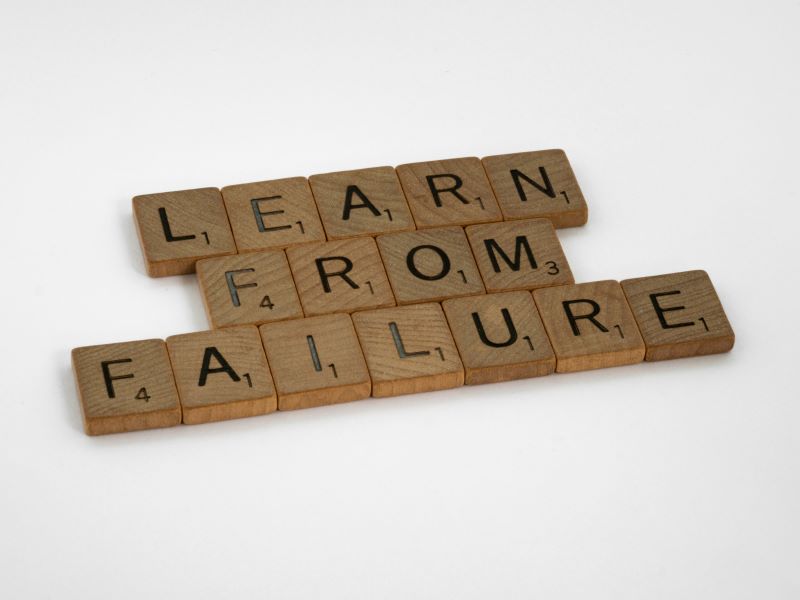I am a lifelong student of business and after interviewing over 500 successful entrepreneurs on my podcast, what I’ve found most fascinating is not their successes but their failures.
Surprisingly, a lot of the entrepreneurs I’ve interviewed have either gone bankrupt or almost lost it all at some point in their careers and we can learn from their mistakes.
In this post, I review 8 of my favorite life and business lessons that I’ve learned from failed entrepreneurs who have gone broke.
Get My Free Mini Course On How To Start A Successful Ecommerce Store
If you are interested in starting an ecommerce business, I put together a comprehensive package of resources that will help you launch your own online store from complete scratch. Be sure to grab it before you leave!
Lesson 1: Leverage Is A Double Edged Sword
The number one life and money lesson we can learn from failed entrepreneurs is to understand the dangers of leverage. Running any business requires some amount of capital, especially ecommerce.
When you run an ecommerce business, you constantly have to be purchasing inventory so you don’t go out of stock and here’s what most people don’t realize.
When you manufacture your own private label products for sale, the factory often takes a few months to make your goods.
And if your products are flying off the shelves, you may find yourself having to front the money for your next production run of products before you’ve sold out of your existing stock.
When this happens, it can be tempting to take out a loan in order to pay for this inventory especially when interest rates are low. One of my good friends fell into this trap and nearly lost all of his money.
Because his products were selling extremely well on Amazon, he decided to take out a second mortgage on his home in order to fund his next inventory run to avoid going out of stock. He could have played it safe, but he wanted to grow his business as quickly as possible.
But then the pandemic hit which caused his sales to drop dramatically. All of a sudden, he had excess inventory that he couldn’t sell and he had a large loan to pay back.
Here’s another story of a famous entrepreneur who almost lost it all. Dave Ramsey was a millionaire at the young age of 26. He owned a lot of real estate with about $4 million in value with $3 million in loans. Overall, he had about $1 million in net wealth.
But during the Reagan administration, there was a change in the banking laws and Dave’s bank responded by recalling all his debt. He didn’t have $3 million in cash so they foreclosed on his properties. He ended up losing everything including his fancy Jaguar.
Growth is great, but be careful to not overextend yourself financially. When times are good, it can be tempting to bet it all but you should always have a back up plan in case things suddenly change.
Lesson 2: Don’t Be Too Greedy
You want to know why there are so many ads for get rich quick schemes on YouTube and Facebook? It’s because these programs prey on people who are greedy and want to make money fast.
It’s also why all of these Nigerian scams still exist. Because they work!
You might think that successful entrepreneurs who are rich already don’t have greed issues, but no matter how much you have, you always want more. It’s human nature.
How can a multi-millionaire possibly lose all their money and go broke? It’s because when you are rich, you tend to take on increasingly larger bets.
I don’t consider myself a rich person by any means but I am pretty well off. Once you start making any amount of money, opportunities start to appear out of nowhere to invest your money.
Over the years, I’ve been tempted to go in on many questionable investments in other people’s businesses. I’ve also been tempted to take out loans to scale my own ecommerce store.
Similar to my friend who mortgaged his home to fund his next inventory purchase, it all boils down to greed. The more you want and the faster you want it, the more risks you have to take which is why this next lesson is so important. .
Lesson 3: Know Your Financial Goals
You have to have financial goals in place to make sure that you don’t succumb to greed and bet it all on chance.
When my wife and I first started our ecommerce business, our goal was to make enough money so that we could spend more time with family. We weren’t trying to start the next billion dollar company.
We just wanted financial freedom so that we didn’t have to spend 40 hours a week at an office. But as soon as the money started flowing in, I wanted more.
In our first year of business, we made over 100k in profit which was already more than enough for my wife to quit her job. But my ambitions were sky high, so we set ridiculous revenue goals every single year.
And when we hit them, we’d celebrate for a day or so and then set another crazy goal for the following year.
Eventually, it got to the point where my wife and I were working ourselves ragged for more money that we didn’t even need. Finally, my wife broke down, we had a heart to heart and she reminded me why we started our businesses in the first place.
Today, we make way more money that we spend and that’s good enough. Without financial goals in place, you will inevitably want more. And greed will eventually lead to your downfall.
Lesson 4: Appearances Can Be Deceiving
Just because someone appears knowledgeable about business doesn’t necessarily mean that they are doing well and making money.
A long time ago, there was a popular YouTuber who sold courses on how to sell on Amazon.
He’d film videos next to fancy cars and even gave a tour of his mansion. But even though he looked like he was making a lot of money on the outside, his businesses were hurting.
One of my friends, Brandon Young, initially caught him fabricating an income report for his Amazon account by forgetting to photoshop a comma in his Amazon income report screenshot.
Then Coffeezilla did a full expose on him and exposed all of his scams. Eventually, the FTC filed a class action lawsuit and he lost all of his money.
If something sounds too good to be true, it almost always is. If you see an ad for any business that promises making money with little effort in a short period of time, run as far away as you can.
Lesson 5: Know The Limits Of Your Expertise
The next lesson that I learned from failed entrepreneurs is to understand the limitations of your knowledge.
I’ve never told this story publicly but I lost a lot of money during the dot com bust of 2001. At the time, I didn’t have any businesses and I was an electrical engineer who knew very little about investing in stocks. But what I did know about was tech.
So I started my investing career by buying tech stocks that I understood well. And everything I bought kept going up.
At the time, I thought I was invincible so I started branching out beyond tech, buying medical stocks, banking stocks, you name it. Whenever I got a random stock tip from a friend, I acted on it and everything was going great. I couldn’t lose!
I even got cocky and started buying stocks on the margin. Buying on the margin is when you borrow money from your broker to leverage your money to buy even more stock.
But then the market bubble busted and I lost all of my gains and more. A lot of the medical stocks and random stocks that I bought went to zero.
Hindsight is 20/20 and looking back, I should have stayed in my lane and stuck with tech.
Lesson 6: There Is No Set Path
The next lesson that I learned from other failed entrepreneurs is to be cautious of blindly following business advice because nothing is black and white.
A strategy that works for one person may not work for you and you must understand the full story behind every case study that you read.
For example, Amazon is one of the biggest online shopping companies in the world. A big reason why they are so successful is because of their Amazon Prime program.
With Amazon Prime, people pay once a year to get free shipping that’s really fast – in just 2 days! As a result, people with Prime membership spend more money on Amazon and keeps them coming back to shop again and again.
Now if you were to read a case study about Amazon, you might be tempted to implement your own “prime” program for your store. But it probably wouldn’t work because your store is not Amazon.
I’ve read and implemented many case studies for my online store that did not yield any results. One time I read a study where Google tested different over 50 different shades of blue for the links on their site and determined that one shade made them 200 million more dollars.
Take everything that you learn online with a grain of salt because every business is different.
I once had a student who listened to one of my podcast episodes and tried to copy my pricing strategy where I raised my prices by 33% across the board. So he tried this too and it ended up killing his sales.
What he didn’t realize was that because I sell my products to the wedding industry, my customers are less price sensitive so I can get away with higher prices than other online shops.
There are no hard and fast rules in business and you’re doing yourself a disservice by blindly implementing strategies without understanding the full story.
Lesson 7: Learn From Your Mistakes
The next lesson that I’ve learned from failed entrepreneurs is that you must learn from your mistakes. It’s foolish to do the exact same thing over and over again and expect different results.
If your business is currently stagnant and you aren’t generating your sales, you have to switch things up.
If you’re running Facebook ads, getting traffic and not making any money, you have to either change your website or your ad copy.
If people are adding products to their shopping cart but not checking out, then you must change your check out process.
If you can’t tell why people aren’t buying from you, then install website tracking software like HotJar so you can watch your customers in real time.
Waiting it out is rarely a good strategy for any business. Any action is better than no action at all.
Lesson 8: Nothing Is What It Seems
Which brings to me to the final lesson that I’ve learned from failed entrepreneurs. There is no perfect business guru.
What you are seeing on Instagram, YT, TikTok are people’s highlight reels and there are always ups and downs for every business.
I once interviewed a very successful entrepreneur on my podcast who went from 0 to $2 in 11 months. And while we celebrated his growth on the recording, as soon as I hit stop, I asked him “Man, growing that quickly must suck”. To which he replied, “oh yeah, it was the most stressful period of my life and I was extremely depressed”.
Remember, nothing out there is exactly how it seems on the inside. If you’re looking to follow someone online, make sure that you resonate with their message and that they are authentic in what they tell you.

Ready To Get Serious About Starting An Online Business?
If you are really considering starting your own online business, then you have to check out my free mini course on How To Create A Niche Online Store In 5 Easy Steps.
In this 6 day mini course, I reveal the steps that my wife and I took to earn 100 thousand dollars in the span of just a year. Best of all, it's free and you'll receive weekly ecommerce tips and strategies!
Related Posts In Making Money
- Powerful Quotes For Entrepreneurs That Will Change Your Outlook On Life
- How To Prevent WordPress Spam Comments From Crashing Your WordPress Blog And Taking Down Your Server
- Why I Finally Quit My Job And 8 Life Lessons I Learned In The Process
- 27 Business Ideas For Teens – How To Make Money As A Teenager
- Should You Leave Your Cushy Job And How Long Should You Stay?

Steve Chou is a highly recognized influencer in the ecommerce space and has taught thousands of students how to effectively sell physical products online over at ProfitableOnlineStore.com.
His blog, MyWifeQuitHerJob.com, has been featured in Forbes, Inc, The New York Times, Entrepreneur and MSNBC.
He's also a contributing author for BigCommerce, Klaviyo, ManyChat, Printful, Privy, CXL, Ecommerce Fuel, GlockApps, Privy, Social Media Examiner, Web Designer Depot, Sumo and other leading business publications.
In addition, he runs a popular ecommerce podcast, My Wife Quit Her Job, which is a top 25 marketing show on all of Apple Podcasts.
To stay up to date with all of the latest ecommerce trends, Steve runs a 7 figure ecommerce store, BumblebeeLinens.com, with his wife and puts on an annual ecommerce conference called The Sellers Summit.
Steve carries both a bachelors and a masters degree in electrical engineering from Stanford University. Despite majoring in electrical engineering, he spent a good portion of his graduate education studying entrepreneurship and the mechanics of running small businesses.


















